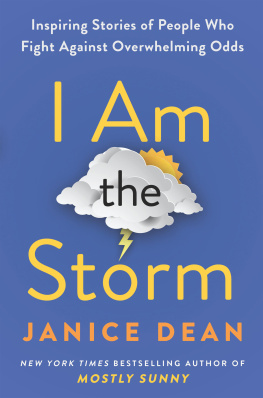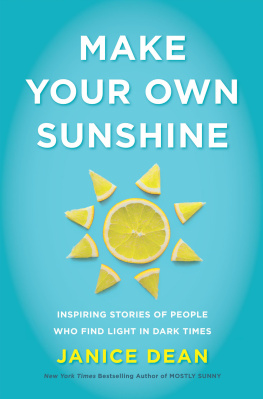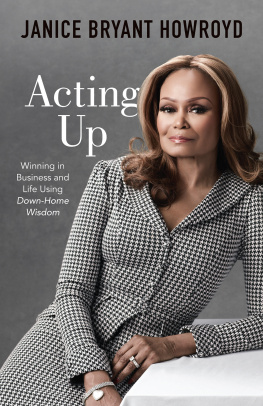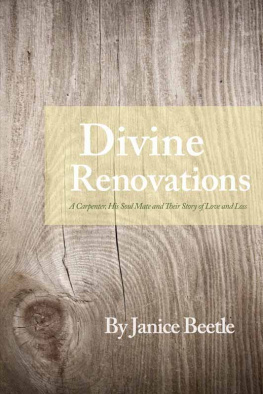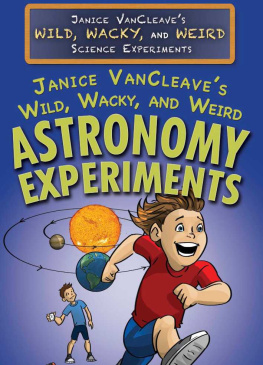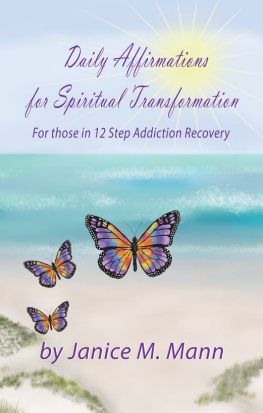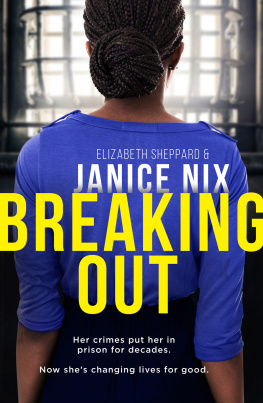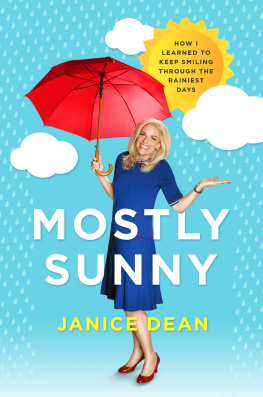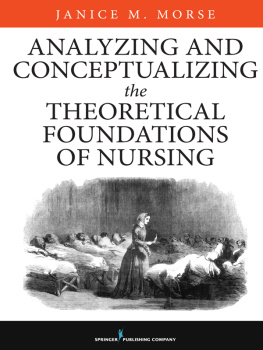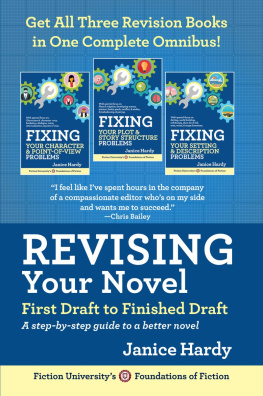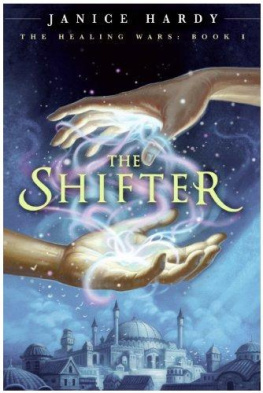You may have to fight a battle more than once to win it.
F or almost twenty years, viewers have seen me as the mostly sunny meteorologist on television. (I even wrote a book about it!) But like the weather I forecast, life isnt always clear skies. The storms roll in, sometimes without any warning. And its what you choose to do with those moments that can change the outcome. Sometimes the roughest conditions teach you the hardest lessons, but it can also prepare you for the future and help build a stronger foundation to stand on.
Ive had plenty of bad weather that threatened to destroy me. A home invasion in my early thirties made me reevaluate where I was living, and helped me decide to move back home to heal. It forced me to look at where I was headed and start over to make better choices. A few years later, a diagnosis of multiple sclerosis threatened to sidetrack my career and hopes for a family of my own. After a few months of feeling sorry for myself, I surrounded myself with encouraging people (and a good therapist) who told me not to let a chronic illness get in the way of my dreams. Despite a few people advising me to keep my MS a secret, I decided it was more important to be honest and share my illness to help others.
Being bullied in school as a kid and having a couple of abusive bosses at work also helped shape the person I am today. Sometimes the best course of action is to walk away from the abuse, which I did in 2003 when I worked for the notorious shock jock broadcaster Don Imus. Not long after I moved to New York for what should have been the best job of my life, I had to look for something else. And that brought me to Fox News, where Ive worked for almost two decades.
In 2016, I was one of the women who came forward about being sexually harassed by Fox News CEO (now deceased) Roger Ailes. The harassment happened early on in my career, and I was able to navigate the situation while still having an exciting, productive job. I just figured the boss was a lonely guy looking for an affair. I brushed off his suggestions and provocative questions and reminded him I was in a relationship. This wasnt the first time Id had to deal with this kind of behavior, and its not exclusive to powerful CEOs in broadcasting. Back then, there wasnt much I could do about it. Most companies were set up to protect those in power.
When Gretchen Carlson filed her lawsuit against Roger after being let go from Fox, many of us had to decide if it was worth coming forward to tell our stories during an investigation. My friend Megyn Kellys name was leaked in the press for confessing that she too was harassed and propositioned by Ailes, and thats when we found the courage to share our own experiences.
None of us thought Roger would be fired, and we would be punished. But, on behalf of other possible victims, a silent army of us risked our jobs and livelihoods to tell our embarrassing, dark stories to a roomful of lawyers. The action was swift. Gretchen won her lawsuit and Roger was let go.
Its important to point out that all of this happened before the #MeToo movement. Sometimes I wonder if maybe my small part helped pave the way for the brave women who came forward about former New York governor Andrew Cuomos alleged sexual harassment.
Ive been asked which was harder: going against one of the most powerful CEOs in broadcasting or a dynasty politician? I will say this: Had I not had the challenge of risking my career to tell the truth about a very powerful boss, I dont think I would have had the courage to stand up to a Cuomo.
It began in the spring of 2020, when my husband lost both of his parents. They contracted the coronavirus in separate care facilities within two weeks of each other. It changed our lives forever, and gave me a new purpose: to find out if their deaths could have been prevented.
Michael and Dolores Newman were both born in New York City. Fondly known to family and friends as Mickey and Dee, they lived in a four-story walk-up in Flatbush, Brooklyn, for more than fifty years. They would have celebrated their diamond anniversary, marking sixty years of marriage, had their lives not been suddenly cut short.
Seans parents were declining in health and were having trouble getting in and out of their apartment. For many years we urged them to find a place that had better access, but we could never convince them. There were aides who would visit, but Mickey was suffering from dementia and Dees health was making it tough to take care of him. It was time to find a place that could help look after both of them. Sean and his sister Donna drove around with Dee looking at assisted living residences, and found one close to us that would take both her and Mickey, but we had to get Mickey in better shape. He was in a nursing home/rehab for various ailments, and his dementia was getting worse. We hadnt even packed up their Brooklyn apartment when COVID crashed into our lives. The Newmans had never been apart for more than a couple of days in their fifty-nine-year marriage, but they ended up both dying alone.
Mickeys death was in late March. We were all in quarantine, and prohibited from visiting him. It was hard to get regular updates on his health. On a Saturday morning, we got a call saying that he wasnt feeling well, and was running a fever. Three hours later he was dead. We didnt find out he died from COVID until we saw his death certificate.
Sean had to tell his mom over the phone that her husband had died. It was the hardest thing hes ever had to do. Two weeks later, Dee got sick and was transported to the hospital, where she was diagnosed with COVID and died a few days later.
At first, we didnt blame anyone for their deaths. We knew the virus was particularly dangerous for the elderly, but we were advised to have them stay put. We later found out there was no proper personal protective equipment (PPE) or ways to test incoming patients. More important, our family was never informed of the March 25 executive order that the governor and the New York State Department of Health were enforcing. More than nine thousand COVID-positive patients would be put back into nursing homes instead of the other facilities that the federal government had provided. I remember that a few days before Mickey died, an aide told us he was being moved to another floor to make room for incoming residents. At that moment we didnt think anything of it, but now I believe it was to bring in infected patients.
When I finally found out about the governors deadly mandate, it was too late. Seans parents were gone. We were unable to have wakes or funerals for them. Many bodies were stored in refrigerated trucks because there was no room for them at the morgues. My sisters childhood friend Frankie, who owns a funeral home, offered to keep them together until we could bury them several weeks later.
As we were mourning their loss, I was trying to find out more information on what was happening inside nursing homes. Why were we told to stay at home and as far away from the virus as possible while the most vulnerable were like sitting ducks with the deadly coronavirus flooding their residences? Some local reporters were starting to ask questions, but Cuomo seemed to be getting a pass. And when he was asked to comment, he deflected the blame.
Meanwhile, the New York governors star was on the rise. The media was in love with this New York Tough talking governor. His daily briefings were televised on national TV and he was embarrassingly fawned over during interviews on all the major news networks.
Cuomos brother, Chris, the prime-time anchor on CNN, was frequently hosting him on his program despite ethical concerns. Many of the segments were peppered with jokes and comments about Andrews love life.

